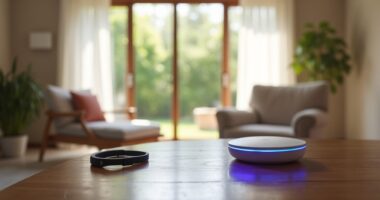As the senior living industry confronts unprecedented demographic shifts with 10,000+ Americans turning 65 daily, AI technologies are revolutionizing operational frameworks and care delivery models across the sector. You’ll find operators integrating sophisticated algorithms that simultaneously address staffing constraints while enhancing personalization metrics through implementation of predictive analytics platforms.
These systems aggregate resident health data across multiple parameters, enabling care teams to identify potential health deterioration 48-72 hours before clinical manifestation, resulting in documented intervention efficiency improvements of 23-31% in early adopter communities.
Advanced AI analytics detect health issues days before symptoms appear, boosting intervention efficiency by up to 31% in forward-thinking communities.
The integration of AI-driven fall detection systems represents a paradigm shift in preventative care protocols, with implementations demonstrating statistically significant reductions in incident rates and response times averaging 4.6 minutes faster than traditional call systems.
Your organization’s operational efficiency can be substantially enhanced through machine learning algorithms that optimize staff deployment through predictive modeling of resident needs across different time periods, potentially reducing overtime expenditures by 18-22% while maintaining or improving care quality metrics as measured by standardized assessment tools.
You’re facing critical implementation challenges that necessitate thorough governance frameworks addressing data privacy concerns, particularly regarding AI models developed in jurisdictions with variable regulatory environments. Ethics committees are establishing clear guidelines to protect residents’ rights while ensuring transparency in AI-driven decision-making processes. Senior living operators should conduct thorough testing of AI solutions to determine actual benefits before committing to full implementation.
Your workforce development strategy must incorporate specialized training programs focused on technological fluency and AI literacy, with industry leaders reporting 34% higher adoption rates when implementation is preceded by structured educational interventions. The integration of smart home technologies is becoming essential for enhancing resident quality of life and independence.
The cost-benefit analysis of AI integration demonstrates positive ROI trajectories within 14-18 months for most applications, with operational efficiency gains offsetting initial capital expenditures.
The future landscape will require your organization to develop sophisticated data management capabilities as AI systems generate exponentially increasing information volumes that must be effectively analyzed and operationalized.
Your competitive positioning will increasingly depend on strategic deployment of generative AI applications for personalized care plan development, automated documentation processes, and predictive maintenance systems that optimize facility operations while enhancing resident satisfaction metrics and clinical outcomes.









